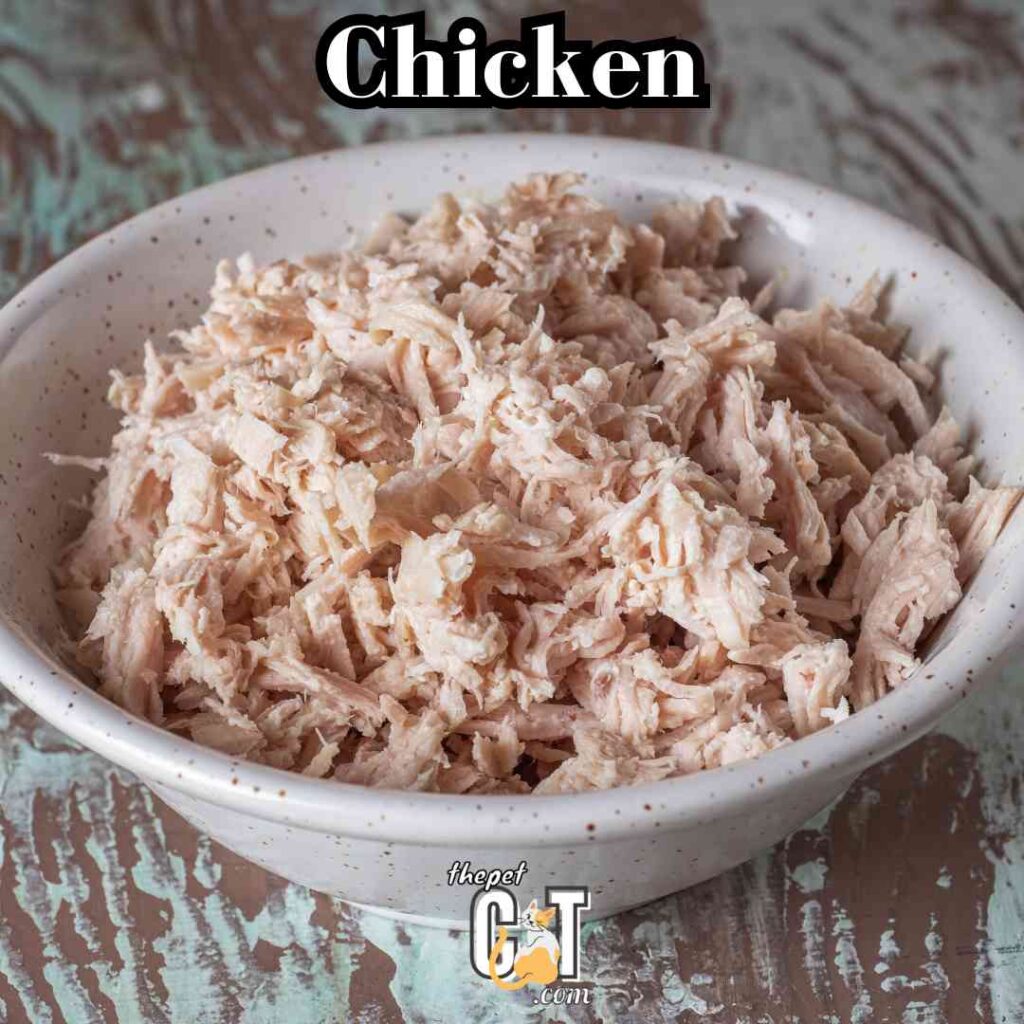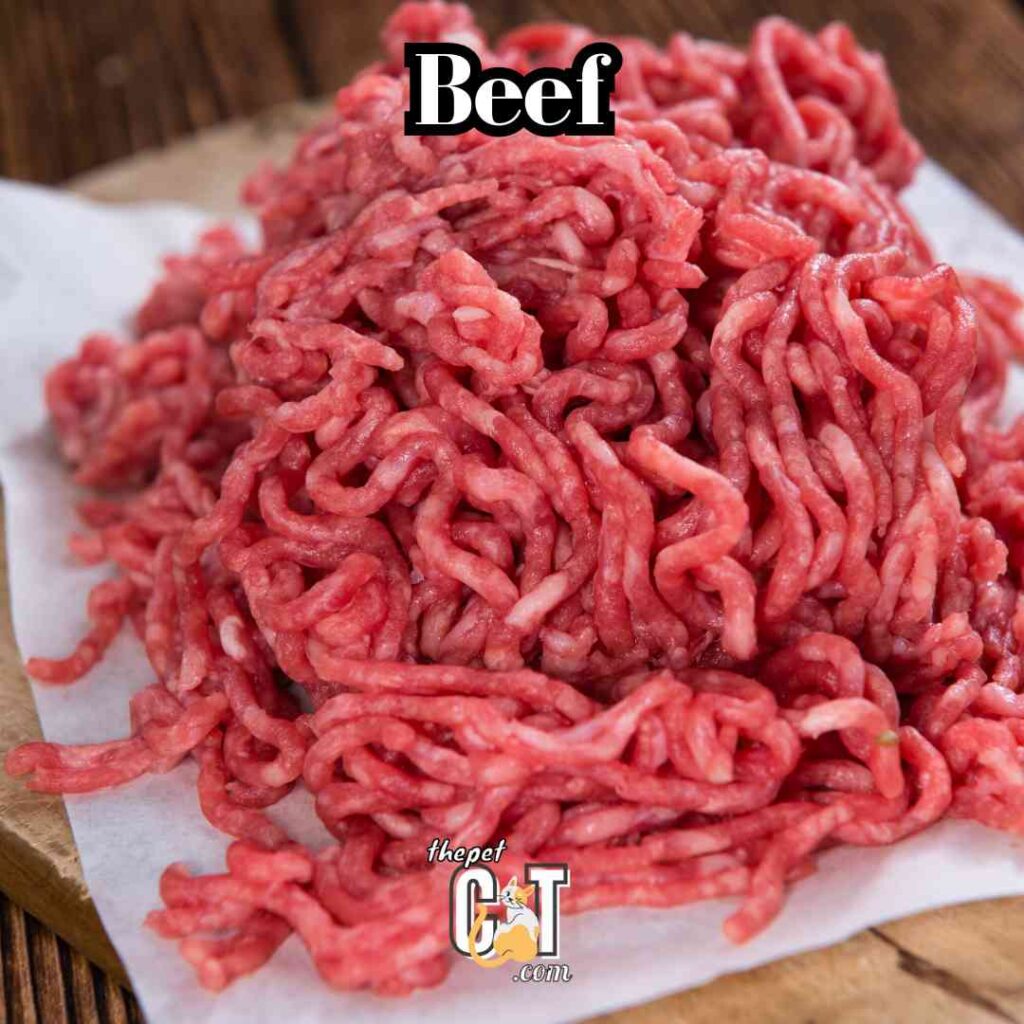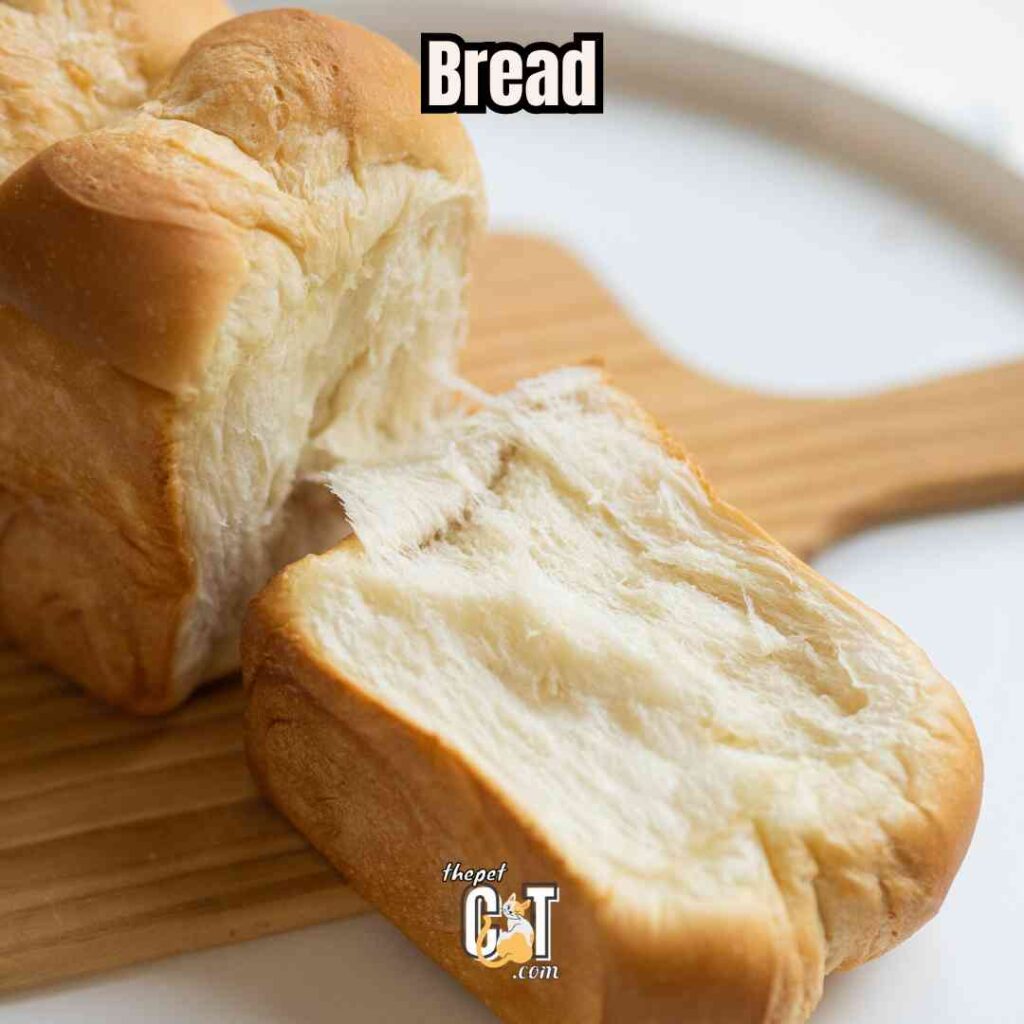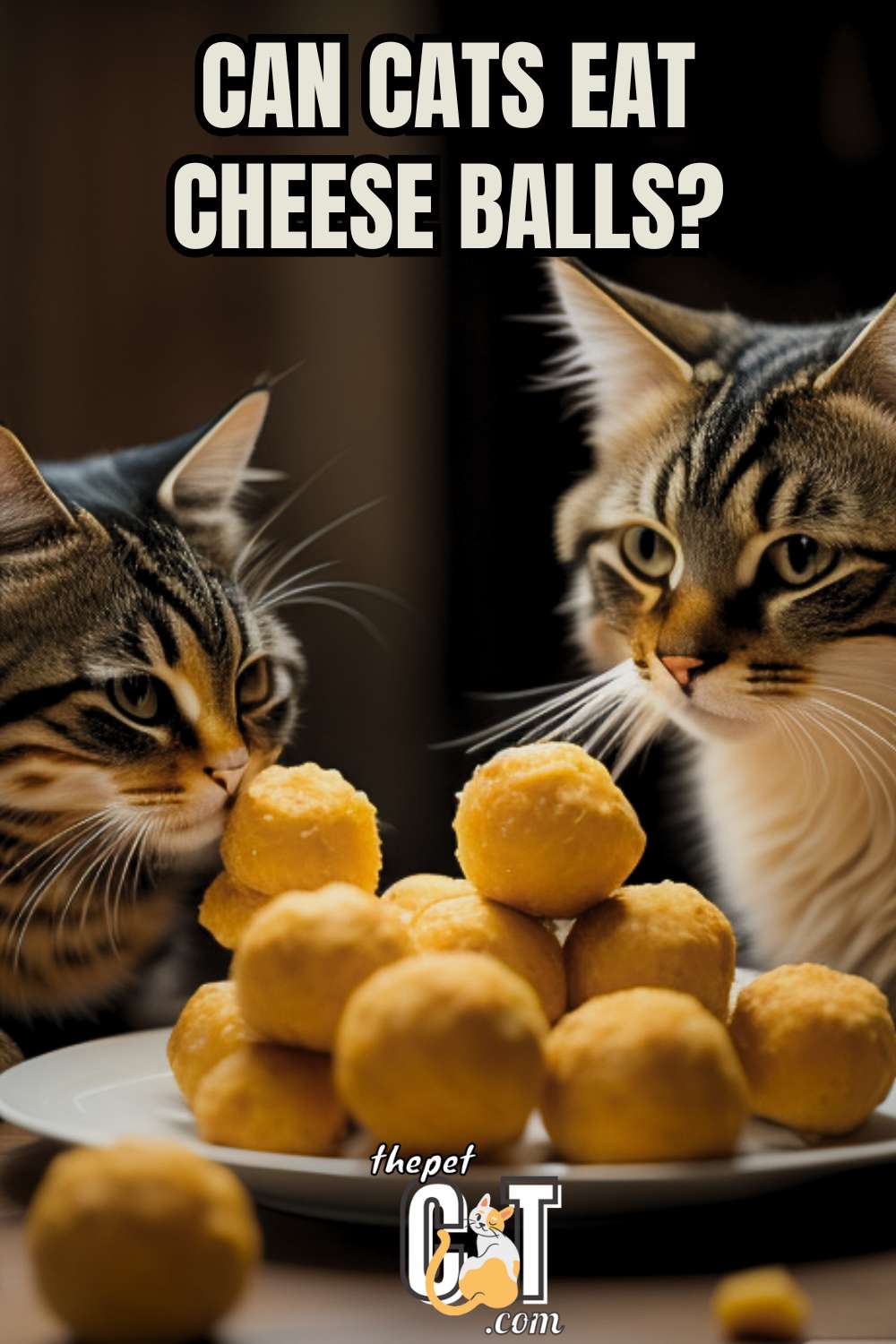Key Takeaways:
- No. Due to digestive difficulties and lack of nutrients, cats should not eat cheese balls.
- The high salt content in cheese balls can harm cats and lead to dehydration.
- Some felines have severe sensitivities to cheese and other dairy products.
- Cheese balls’ small size and crunchy texture pose a choking hazard to cats.
Cheese balls, while not toxic and unlikely to cause much harm from a small bite, are not recommended for cats. Cheese balls are highly processed foods mainly made of cornmeal and seasoned with several types of cheese powder, various additives, and oils. When fed to cats, these components can cause gastrointestinal problems, including diarrhea and an upset stomach.
Additionally, To read more details on Can Cats Eat Cheese Balls? You can read the following article.
Can Cats Eat Cheese Balls? 5 Reasons Why It’s a Big “No”

If you adore cheese balls and own a cat, you may wonder if giving your pet access to your favorite food is OK. Although they are known for being picky eaters, cats frequently want to taste whatever their human friends eat since they are naturally curious.
However, can cats eat cheese balls? No, although cheese by itself is not hazardous to cats, the components that go into making cheese balls can be dangerous to our furry companions.
Here’s why Cheese Balls are unhealthy for cats:
1. Cats Cannot Process Milk
Because of their nature as obligate carnivores, cats can’t sustain themselves without a diet high in animal proteins. Like all dairy products, cheese balls include Milk since cats do not produce enough enzymes to digest it.
Cheese is difficult for their digestive systems to process, so consuming excessive cheese balls can cause diarrhea. Cheddar and Swiss cheeses, which are harder and contain less lactose, would be a better (though still not completely risk-free) choice for cats to nibble on. Because of their high lactose content, soft cheeses such as mozzarella and Brie are best avoided.
2. High Fat and Calorie
Cats need a balanced diet appropriate to their species because their nutritional requirements differ from those of humans. There are a lot of calories and fat packed into cheese balls. In addition to obesity and pancreatitis, feeding your cat an excessive amount of high-fat foods can cause other health complications.
Also, cheese balls and crisps’ high carbohydrate and lipid content makes them an excellent energy source. But they’re low in nutrients (vitamins, minerals, and protein). This would indicate that cats would view crisps and cheese balls as “junk food.”
The natural diet of cats is composed of meat because they have evolved to be obligate carnivores. Due to restrictions in the digestive system, there is a potential for developing pancreatitis, an inflammatory condition affecting the pancreas, with high-fat diet consumption.
3. Harmful Ingredients
Classic cheese balls call for various aromatics, such as cream cheese, cheddar cheese, potatoes, herbs, garlic, and onions. These cheese ball components won’t impress your feline friends. When cats ingest these toxic substances, they may suffer from a host of gastrointestinal problems like diarrhea, vomiting, stomachache, and abdominal pain.
Onions and garlic are toxic to pets, says the ASPCA. Garlic causes gastric issues in cats, while onions crush red blood cells, making your feline friend lifeless, apart from the high levels of salt and sodium, which may result in various cardiovascular problems.
4. Nutritional Imbalance
Despite its protein and calcium content, cheese is deficient in certain elements cats require for good health. For example, it does not include taurine, an amino acid only present in meat proteins. Including cheese balls in a cat’s food can eventually cause nutritional deficits.
5. Disruption of Weight Management
Cats who are overweight or obese can find it difficult to control their weight if they are fed high-fat foods like cheese balls. Cat obesity is associated with an increased risk of many serious health problems, such as diabetes, arthritis, and heart disease.
Can Cats Eat Cheese Puffs?
No. Although a small cheese puff won’t harm them, it’s not good for their health if they eat it too frequently. Salt, seasonings, and crumbled cheese are the usual ingredients in a cheese puff. These can be risky for many reasons; here’s why:
- Because of their high sodium and fat content, cheese puffs could be detrimental to your cat’s health if given to them often. Consuming too much sodium can cause dehydration and, in extreme circumstances, poisoning. It can also drastically reduce a cat’s lifetime and create cardiac issues.
- Also, it can be fatal for your cat to eat too many cheese puffs at once. Compared to your cat, our bodies are considerably bigger. Hence, they have a lower salt tolerance than humans.
- If your feline friend snacks on cheese puffs, there would be a lot of salt in your cat’s diet. It is quite risky. An excessive amount of salt can lead to kidney failure, high blood pressure, heart attacks, and urine problems.
- The components of cheese puffs include low-quality vegetable fats. Your cat may gain weight and develop obesity as a result of the excessive fat and calorie content. Many serious health issues, such as diabetes, arthritis, heart disease, and a host of others, can develop in an overweight cat.
- Overweight cats are a major problem in the United States; 60% of American domestic cats are overweight. Diabetes, cancer, heart disease, osteoarthritis, and urinary bladder stones are just some of the many health problems that can afflict overweight cats, reducing their lifespan and quality of life.
- Ultimately, there is no nutritional value in cheese puffs for cats. Cheese puffs contain a lot of carbs. As a carnivore by nature, cats require far more protein than carbs. Cats require reasonable levels of fat and good proteins; thus, mostly carbs and fat don’t meet their needs. Consequently, a balanced diet is all that cats need to stay healthy.
Alternative Safe and Natural Treats for Cats
Some healthy treats for cats are given below:
Chicken or Turkey

Thoroughly cook the meat without adding any seasonings, garlic, or onions. Soup, baking, or steaming will do the trick. Get the meat to a safe temperature and make sure it’s tender. To make the meat easier to digest, chop it into pieces once cooked.
Portion: Around 1 to 2 tablespoons
Beef

Do not add any flavors, spices, garlic, or onions to the beef while cooking it. Pick a way to cook it, like boiling, baking, or steaming. Ensure the meat reaches a safe temperature before cutting it into small, bite-sized pieces.
Portion: 2 tablespoons
Bread

Ensure the bread is plain and does not contain any additives. Ensure to eliminate any crust or seeds since they may be difficult for cats to digest. Chop the bread into tiny, bite-sized pieces.
Portion: A Piece about the size of a fingernail.
Vegetables (Carrots, Peas, Sweet potatoes, Cucumber, Broccoli)

Cook the vegetables by boiling, steaming, or simmering until tender. To make eating the cooked vegetables easier, finely chop or mash them.
Portion: Such as a tablespoon, as an occasional treat
Fruits (Apple, Mango, Bananas, Blueberries)

Remove seeds, pits, and any inedible parts. Cut the fruit into small, bite-sized pieces.
Portion: Offer a small amount, no more than 10%.
Can Cats Eat Cheese?
Yes, cats can consume cheese. However, as cheese isn’t typically part of their diets, you can offer your cat a tiny quantity of cheese—roughly the size of a dice.
Cheese frequently had additives that are poisonous to felines. Certain cheeses that contain garlic, chives, or onion should not be fed to your pet. Also, don’t feed blue cheese or any other moldy cheese. Molds can cause gastrointestinal problems in cats, especially seniors or those with health problems.
Is Cheese Good for Cats?
No, cats don’t get any nutritional value from cheese. Cats rely on meat for their essential nutrients as obligate carnivores. Cats require nutrient-rich diets, which should account for the bulk of their caloric intake. Cheese and other human foods should be provided sparingly and only on occasion.
Can Cats Eat a Little Bit of Cheese?
Yes, cheese for cat can be safe when only in moderation. To prepare cheese for cats, cut up the cheese into bite-sized pieces that can be easy for your pet to manage. You can get a decent notion of what to aim for by looking at the size of cat kibble.
Always keep an eye on them when you feed them new food. Avoid feeding cheese to your cat if it shows signs of stomach upset like vomiting or diarrhea. Instead, contact your veterinarian.
Can I Feed My Cat Cheese?
Yes, you can occasionally give your cat cheese. Although some cats do not have a lactose intolerance, it is important to introduce cheese gradually and monitor your cat’s response. Some cats may have distinct levels of tolerance to dairy products, with some being able to consume small amounts of cheese without issues.
Here are a few tips when feeding cheese to your cat:
- When you offer your cat a tiny piece of cheese, see how it reacts. Check for signs of gastrointestinal discomfort, like stomach upset or diarrhea.
- Choose milder cheeses like mozzarella or cheddar that have less lactose in them. Cats are often better able to tolerate these.
- Offer them simple, unsalted cheese. Cheeses flavored with additional herbs, spices, or flavorings should be avoided because certain cats can be allergic to them.
- It is recommended to avoid giving dairy products to your cat if they exhibit symptoms of lactose intolerance, such as an upset stomach after eating cheese.
- Cheese is a great ingredient for homemade cat treats or a special treat for when your cat is particularly good during training.
- Cheese is appealing, but providing your cat with a balanced diet is important. Ensuring a well-rounded and thorough cat diet is crucial.
- If your cat has any special nutritional needs or health issues, or if you just have any questions, it’s best to talk to your doctor. The health and nutrition of your cat should always come first, so be sure to feed them a balanced diet.
Is Cheese Bad for Cats?
Cheese consumption in large quantities can pose a risk to cats. Cats can gain weight from consuming too much fat, such as that found in cheese. Obesity can lead to various complications, such as diabetes, arthritis, and heart disease.
The sodium content of some cheeses can be rather high, particularly those that are pasteurized or salted. Hypertension and kidney problems are among the health issues that might develop in cats due to excessive salt intake.
Will Cheese Hurt Cats?
While cats won’t die from eating them, excess cheese might cause gastrointestinal distress and vomiting. Obesity can also result from eating cheese for an extended period. Just like an excess of salt can harm individuals, certain cheeses contain high salt levels.
Because cats don’t always chew their food properly, avoiding giving them big pieces of cheese or other food that could cause them to choke is important. Cats can experience weight gain from consuming too much fat, such as that present in cheese. Obesity contributes significantly to various health issues like diabetes and joint pain.
Which Cheese Safe for Cats?
Hard cheddar, Gouda, cream, mozzarella, Swiss, string, feta, cottage, and parmesan cheeses are acceptable. These treats have a low lactose content, making them easier for your cat to digest.
If you want to keep your cat from gaining weight, which might result from eating too much fat, use low-fat or reduced-fat cheese.
Also, because of its high lactose content, whether raw (as in string cheese) or cooked (as on pizza), mozzarella is prone to irritate the cats’ stomachs.
Many felines have a more favorable reaction to provolone. Minimize the portion size if your feline friend insists on having a bite. Saying “no” to sharing string cheese is generally the best practice.
FAQs
My Cat Ate Cheese What Should I Do?
Assuming your feline friend is acting normally after consuming a modest quantity of cheese, there’s no need to panic. Cheese has several ingredients, some of which cats may be allergic to. Quick veterinarian care is required if you see any symptoms: swelling, itching, or trouble breathing.
Can Cats Eat Cheddar Cheese?
Yes, cats can have a little cheddar cheese now and again. Select a mild cheddar cheese without any additional flavors or additives. Because some felines have sensitivities to particular ingredients, providing an unseasoned, plain version is wise.
Can Cats Eat Mozzarella Cheese?
Cats should avoid eating raw or cooked soft cheeses like mozzarella due to the high lactose content. Cottage and cream cheese are just as dangerous, so stay away.
Can Cats Eat Parmesan Cheese?
Parmesan cheese is OK for cats to eat, but they should occasionally have little portions as treats. Problems with digestion and other health difficulties can arise from its excessive salt and fat content. Consider offering your feline friend some chicken or fish instead of parmesan cheese.
Can Cats Eat Cheez-Its?
Cats shouldn’t eat Cheez-Its or any other similar human foods. Cheez-Its might not be the best choice for cats because of how processed they are and the substances they contain. Cats might not get the nutrition they need from these baked goodies due to the abundance of extra additives.
Can Kitten Eat Cheese?
Kittens are less likely to be lactose intolerant than adult cats, so giving them small amounts of cheese is usually fine. Although some kittens may develop a lactose intolerance as they mature, others continue to generate the enzyme lactase, which is essential for digesting the lactose found in breast milk. Following cheese consumption, be alert for signs of gastrointestinal discomfort like diarrhea or abdominal pain.
Can Cat Eat Cheesecake?
It is recommended to avoid giving cats cheesecake. The classic cheesecake recipe calls for sugar, cream cheese, and various other ingredients (such as a crust made of butter or chocolate) to create a delicious dessert. Feeding this ingredient can be toxic for cats.
Final Verdict
Can Cats Eat Cheese Balls? Although cats could be enticed by the aroma and flavor of cheese balls, keeping them away from these snacks is wise. Cheese balls might not be the best option for cats because they don’t always meet their nutritional requirements or are difficult to digest.
Choosing snacks suitable for cats is wise when planning a special surprise for your cat. Cats can choose from various healthful and safe treats on the market. These treats, made with top-notch ingredients, offer essential nutrients for your cat. You should prioritize your cat’s health and welfare above anything else.
You May Also Like to Read:

